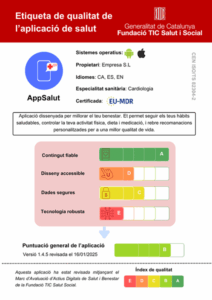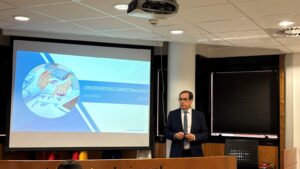The real estate market landscape in Spain is undergoing a significant transformation, driven primarily by trends towards digitalization, sustainability, and current economic fluctuations. This phenomenon is reflected in the recent report by Catenon, which highlights how expectations of a potential reduction in interest rates by the end of 2024 could be the necessary boost to revitalize investments in real estate assets and simplify access to credit. These favorable conditions would open new doors for home purchases and changes in investment dynamics within the sector.
The document emphasizes the importance of innovation and adaptation to the new market demands shaping the future of the sector for 2025. The reduction in the supply of rental homes, along with the increasing attractiveness of “build-to-rent” projects and sustainable assets, are continually redefining expectations for investors and sector players, according to Borja Dávila, Executive Partner at Catenon. He asserts that participants in these fields must prepare for an increasingly complicated financial environment by diversifying investments in logistics and hotel assets, and anticipating changes in interest rates to achieve returns that surpass inflation.
In 2024, the Spanish real estate market has seen a 12% decrease in the availability of rental properties, leading to a 7% increase in prices for these homes in major cities like Madrid and Barcelona. In this context, there has been a renewed interest in flexible rental solutions, with a notable 15% increase in sales of such projects. This type of rental has provided crucial stability to investment funds and developers, offering sustained income amidst current volatile conditions.
With the anticipated reduction in interest rates, projected to be up to 50 basis points, an increase in real estate transactions for 2025 is expected. This change could particularly benefit the “build-to-rent” segment, helping to balance the rental market in major urban areas. Simultaneously, demand for logistic assets has grown by 18% driven by the growth of e-commerce, reflected in increased occupancy of storage facilities and distribution centers.
Furthermore, shopping centers are responding to the rise of online commerce by adapting to mixed-use models that combine leisure, dining, and entertainment. Investments in digital solutions to enhance the customer experience have increased by 12%, indicating a trend towards improving operational efficiency.
The hotel sector is also poised to benefit from the expected decrease in interest rates, showing a 10% growth in overnight stays in the most renowned tourist destinations. This has led to a renovation of hotel assets, increasing investment in the rehabilitation of establishments.
Regarding sustainability, 40% of new investments are allocated to buildings with energy certifications, making them more attractive to investors. The banking sector has increased its investment in digitalization by 8%, focusing on fintech, cybersecurity improvements, and financing green projects.
Lastly, the demand for specialized talent in digitalization and sustainability has significantly increased, reflected in a growing need for sustainability directors and real estate technology advisors. The need for CFOs and executives capable of implementing effective strategies has grown by 18%, indicating fierce competition in the market for qualified professionals who can offer quick and well-planned solutions in such a dynamic environment.
via: MiMub in Spanish












